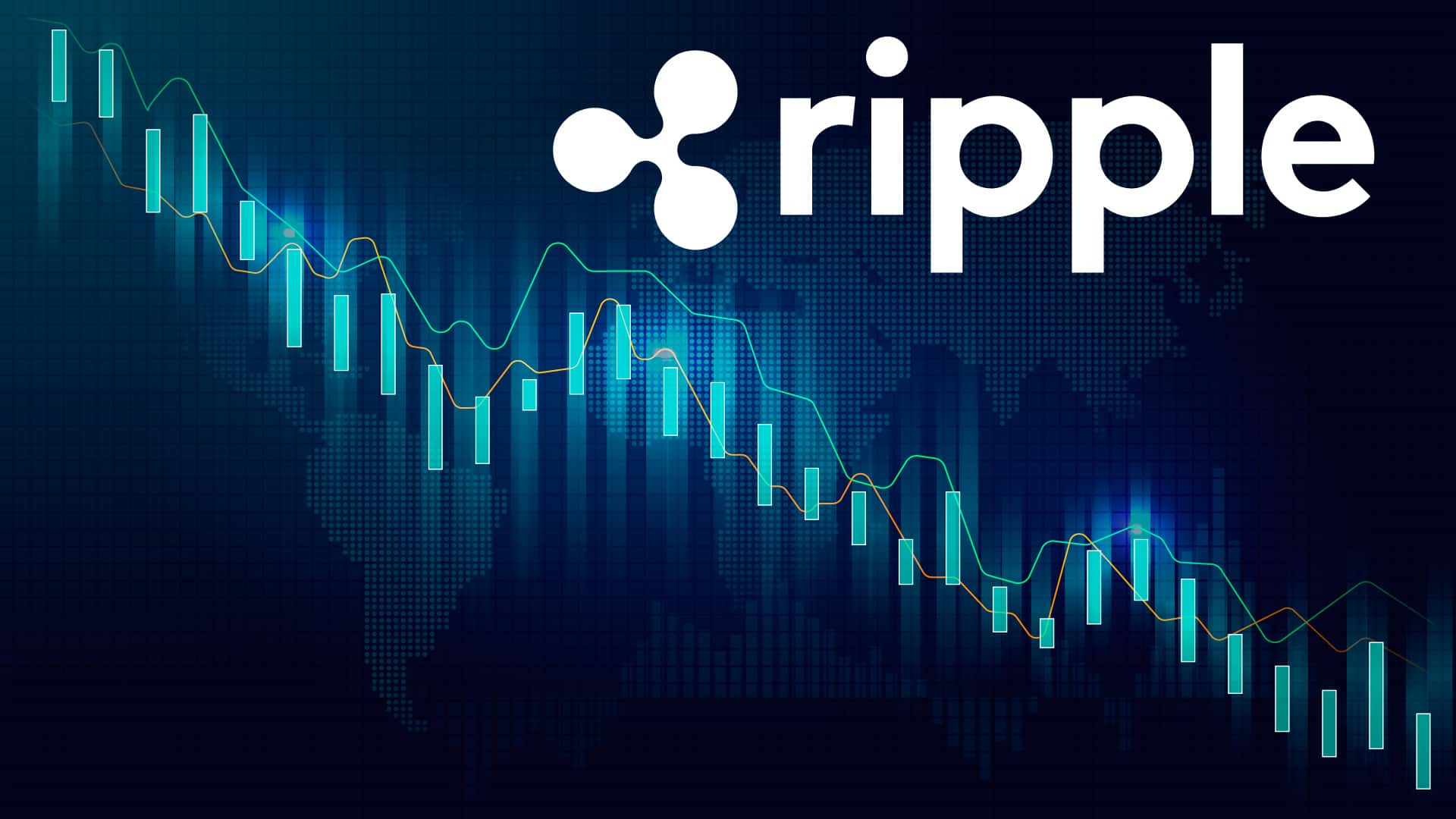Listen up, folks! If you're diving into the world of cryptocurrencies, you can't ignore Ripple. It's not just another blockchain project—it's a game-changer with a unique approach to digital payments. Whether you're an investor, a tech enthusiast, or someone curious about the future of finance, Ripple deserves your attention. So, buckle up, because we're about to break it all down for you.
Ripple is more than just a cryptocurrency. It's a platform designed to revolutionize how money moves across the globe. In a world where transactions can take days and incur hefty fees, Ripple offers a solution that's fast, efficient, and cost-effective. But what exactly is Ripple, and why should you care? Let's dive in.
Before we get into the nitty-gritty, let's clear the air. Ripple isn't just about the XRP token, though that's what most people think of first. It's a whole ecosystem that includes payment protocols, financial institutions, and a growing community of users. So, whether you're here for the tech, the finance, or just the buzz, you're in the right place.
What Exactly is Ripple?
Alright, let's start with the basics. Ripple is a real-time gross settlement system (RTGS), currency exchange, and remittance network. It's like a Swiss Army knife for global payments. Created in 2012, Ripple was designed to provide a seamless way to transfer money across borders without the usual delays and costs associated with traditional banking systems.
How Ripple Works
Here's the deal: Ripple uses its own distributed ledger technology, the XRP Ledger, to facilitate transactions. This ledger operates independently of the RippleNet, which is the network that financial institutions use to send cross-border payments. The XRP token plays a crucial role in this system by acting as a bridge currency, enabling instant conversions between different fiat currencies.
Think of it like this: if you want to send dollars to someone in Europe who wants euros, Ripple can convert your dollars to XRP and then to euros in seconds. No need to wait for banks to process the transaction or charge you an arm and a leg for the privilege.
The Ripple XRP Token: More Than Just Crypto
Now, let's talk about XRP. XRP isn't just another cryptocurrency; it's the lifeblood of the Ripple ecosystem. Unlike Bitcoin or Ethereum, XRP isn't mined. Instead, all XRP tokens were created at the launch of the network, and Ripple Labs controls a significant portion of the supply.
Why XRP Matters
XRP is designed to be a utility token, meaning it's meant to be used within the Ripple ecosystem rather than being a store of value like Bitcoin. Its primary function is to act as a mediator in currency exchanges, ensuring that transactions are fast, cheap, and secure.
Here's a quick rundown of why XRP is such a big deal:
- Speed: Transactions are confirmed in just 4 seconds, compared to the hours or even days it can take with traditional banking.
- Cost: The average transaction fee is less than a penny, making it one of the most affordable cryptocurrencies out there.
- Scalability: The XRP Ledger can handle up to 1,500 transactions per second, which is far more than what Bitcoin or Ethereum can manage.
RippleNet: Connecting the World's Financial Institutions
RippleNet is Ripple's flagship product, and it's where the magic happens. This network connects banks, payment providers, and digital asset exchanges, enabling them to send money across borders quickly and efficiently. It's like having a global financial highway where everyone can access the same infrastructure.
Who Uses RippleNet?
Some of the biggest names in finance are already onboard with RippleNet. Banks like Santander, Standard Chartered, and Axis Bank are using the platform to streamline their cross-border payments. Even remittance companies like MoneyGram have partnered with Ripple to leverage its technology.
Why do they choose RippleNet? Because it saves them time and money. Instead of relying on outdated systems that can take days to process payments, they can settle transactions in seconds. And let's not forget the cost savings. With RippleNet, financial institutions can reduce their operational costs significantly.
Ripple's Role in the Global Financial System
Ripple isn't just trying to disrupt the financial industry; it's aiming to improve it. By offering a more efficient and cost-effective way to move money, Ripple is challenging the status quo and pushing for a more inclusive global financial system.
Challenges Facing Ripple
Of course, no story is complete without its fair share of challenges. One of the biggest hurdles Ripple has faced is regulatory scrutiny. In December 2020, the U.S. Securities and Exchange Commission (SEC) sued Ripple Labs, alleging that the company had conducted an unregistered securities offering by selling XRP.
This lawsuit sent shockwaves through the crypto community and led to a decline in XRP's price. However, Ripple has been fighting back, arguing that XRP is a currency, not a security. The case is still ongoing, but it has sparked a larger conversation about how cryptocurrencies should be regulated.
Investing in Ripple: Is It Worth It?
If you're considering investing in Ripple, there are a few things you need to know. First, let's talk about the potential. Ripple has a strong use case and a growing list of partners, which could make it a solid investment in the long run. Plus, with the increasing demand for faster and cheaper cross-border payments, Ripple is well-positioned to capitalize on this trend.
Risks to Consider
However, as with any investment, there are risks involved. The ongoing SEC lawsuit is a major concern, as it could impact Ripple's ability to operate in certain markets. Additionally, the crypto market is notoriously volatile, so prices can fluctuate wildly in a short period of time.
That being said, if you're willing to take on the risk, Ripple could be a worthwhile addition to your portfolio. Just make sure to do your research and invest only what you can afford to lose.
Ripple vs. Bitcoin: Which One Should You Choose?
This is a question that comes up a lot in the crypto community. Ripple and Bitcoin are both popular cryptocurrencies, but they serve very different purposes. Bitcoin is often referred to as "digital gold" because of its store-of-value properties, while Ripple is focused on facilitating fast and cheap transactions.
Key Differences
Here's a quick comparison to help you decide which one might be right for you:
- Purpose: Bitcoin is primarily a store of value, while Ripple is designed for fast transactions.
- Speed: Bitcoin transactions can take anywhere from 10 minutes to several hours, whereas Ripple transactions are confirmed in just 4 seconds.
- Cost: Bitcoin transaction fees can be quite high, especially during periods of high network congestion. Ripple, on the other hand, offers extremely low fees.
The Future of Ripple: What's Next?
So, where is Ripple headed? The company has big plans for the future, including expanding its partnerships with financial institutions and exploring new use cases for its technology. Ripple is also investing heavily in research and development, with a focus on sustainability and energy efficiency.
Predictions for Ripple
Many experts believe that Ripple has the potential to become a major player in the global financial system. As more countries adopt digital currencies and blockchain technology, Ripple's solutions could become even more relevant. However, the outcome of the SEC lawsuit will likely play a big role in determining Ripple's future trajectory.
For now, the Ripple team remains optimistic and continues to innovate. They believe that the future of finance is digital, and they're determined to lead the charge.
Conclusion: Why Ripple Matters
To sum it up, Ripple is a groundbreaking project that's reshaping the way we think about money and payments. Whether you're an investor, a tech enthusiast, or just someone interested in the future of finance, Ripple is worth keeping an eye on.
So, what's next? If you've found this article helpful, we'd love to hear from you. Drop a comment below and let us know what you think about Ripple. And if you're ready to dive deeper into the world of cryptocurrencies, be sure to check out our other articles. Stay tuned, because the future of finance is just getting started!
Table of Contents


